PRESENTATION:Thomas Scheibitz, WÜSTE—DSCHUNGEL / Omega UND Tunnel
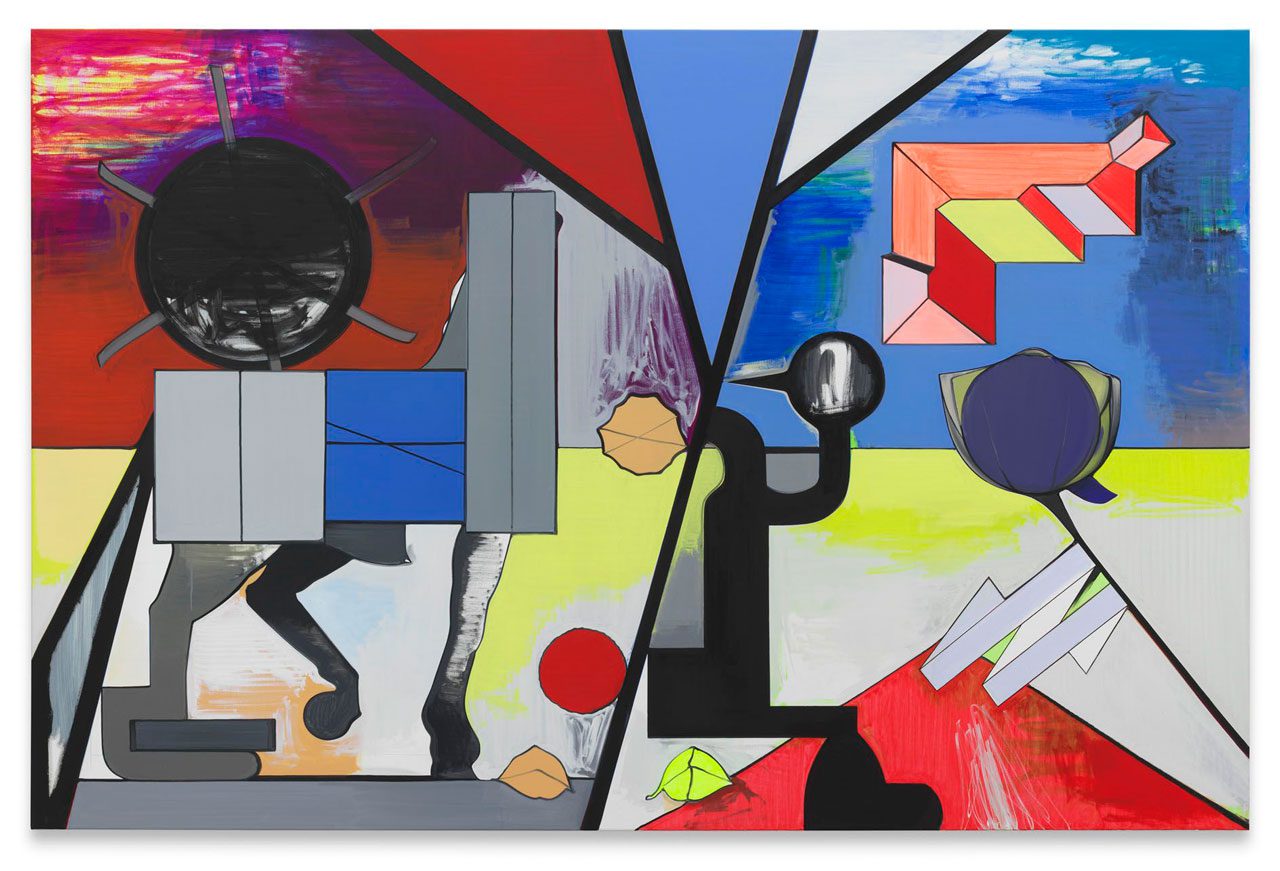 Since the early 1990s, Thomas Scheibitz has developed a kind of conceptual painting and sculpture that draws upon art-historical references, and at the heart of the Berlin-based artist’s work is a search for a new relationship between figuration and abstraction. The search leads him to not only pushing the limits of his media, expanding its potential, but also to question the contemporary relevance of this traditional antagonism between the two poles.
Since the early 1990s, Thomas Scheibitz has developed a kind of conceptual painting and sculpture that draws upon art-historical references, and at the heart of the Berlin-based artist’s work is a search for a new relationship between figuration and abstraction. The search leads him to not only pushing the limits of his media, expanding its potential, but also to question the contemporary relevance of this traditional antagonism between the two poles.
By Dimitris Lempesis
Photo: Sprüth Magers Gallery Archive
Thomas Scheibitz’s paintings and sculptures represent a continuous exploration of the visual translation of complex thoughts and social models, which are transformed into multilayered, often fragmented pictorial structures—structures that are simultaneously open and in a perpetual state of flux. From his earliest to his most recent works, Scheibitz simultaneously solves and dissolves everything. These works symbolize the act of encoding and decoding and allude to one of the artist’s main themes: mapping, measuring, penetrating, and exploring a pictorial inventory. This is a difficult territory to explore, a journey between contradictions and extremely varied regions. In his solo exhibition “WÜSTE—DSCHUNGEL / Omega UND Tunnel”, the process of thinking and visual exploration take center stage. As we follow these artistic thought processes, the exhibition leads us to models and stations that refer to words, letters, sketches, drawings, paintings, and sculptures by the Dresden-born artist A.R. Penck (1939– 2017). The title of the exhibition itself is a quote from a letter written by Penck. What is especially fascinating here is the peculiar balance or polarity between capturing and letting go, learning and forgetting. For Scheibitz, it is Penck’s artistic attitude in particular that he seeks to approximate. This approximation becomes a way of acting out various potential attitudes, not as a mere accumulation of knowledge or skills, but as an ongoing, open exploration. Penck’s artistic attitude becomes signs and figures that are influenced by a superstructure and substructure of thoughts and forms. Scheibitz’s works are like models—not definitive solutions, but rather expressions of a way of thinking that is never fully complete. This attitude refers directly to Penck’s own methodical practice, in which the process of painting and thinking was just as important as the result. The return to the dark zones of the old and new Federal Republic of Germany, the distance, the attitude toward the material, and the attentiveness to linguistic, semantic, pictorial, and cultural models—which, historically, have often been implemented incorrectly—all ultimately offer new relationships without homogenizing or devaluing them. The hidden, frictional difference outlined in the exhibition title reflects the paradoxes of world, self, and history. “Scheibitz’s Groteskkopf” (2024) brings together all these modified approximations and deviations as well as the consequences of the past. The threefold eye of thinking, seeing, and understanding continues to gaze intently, even when others have long since turned away—whether due to a hastily cemented abstraction or a withdrawal into repression. Scheibitz works to counter a misery that disguises itself as myth; in his paintings, he contemplates the world, its connections and structures in a deeper and more precise way. It is not Penck’s style but his artistic attitude that Scheibitz approximates here. Scheibitz’s precise gaze is focused on the consequences of the past, which are seemingly no longer visible, in order to confront them in the image itself in the present.
Photo: Thomas Scheibitz, Verdacht, 2024, Oil, vinyl and pigment marker on canvas, 250 x 380 cm | 98 3/8 x 149 5/8 inches, © Thomas Scheibitz, Courtesy the artist and Sprüth Magers Gallery
Info: Sprüth Magers Gallery, Oranienburger Straße 18, Berlin, Germany, Duration: 22/11/2024-11/1/2025, Days & Hours: Tue-Sat 11:00-18:00, https://spruethmagers.com/

Right: Thomas Scheibitz, Rose, 2024, Oil, vinyl, spray paint and pigment marker on canvas, 220 × 160 cm | 86 5/8 × 63 inchess, © Thomas Scheibitz, Courtesy the artist and Sprüth Magers Gallery
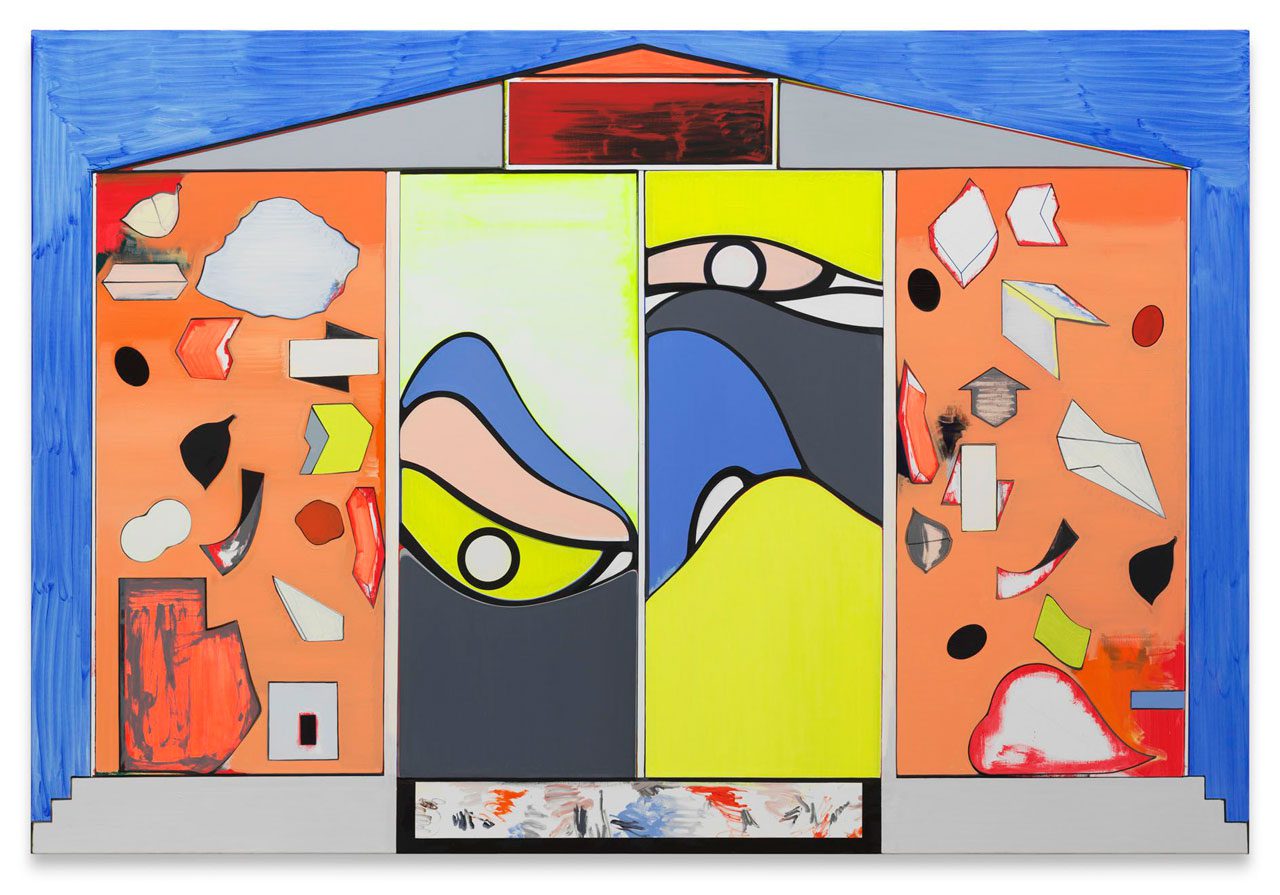
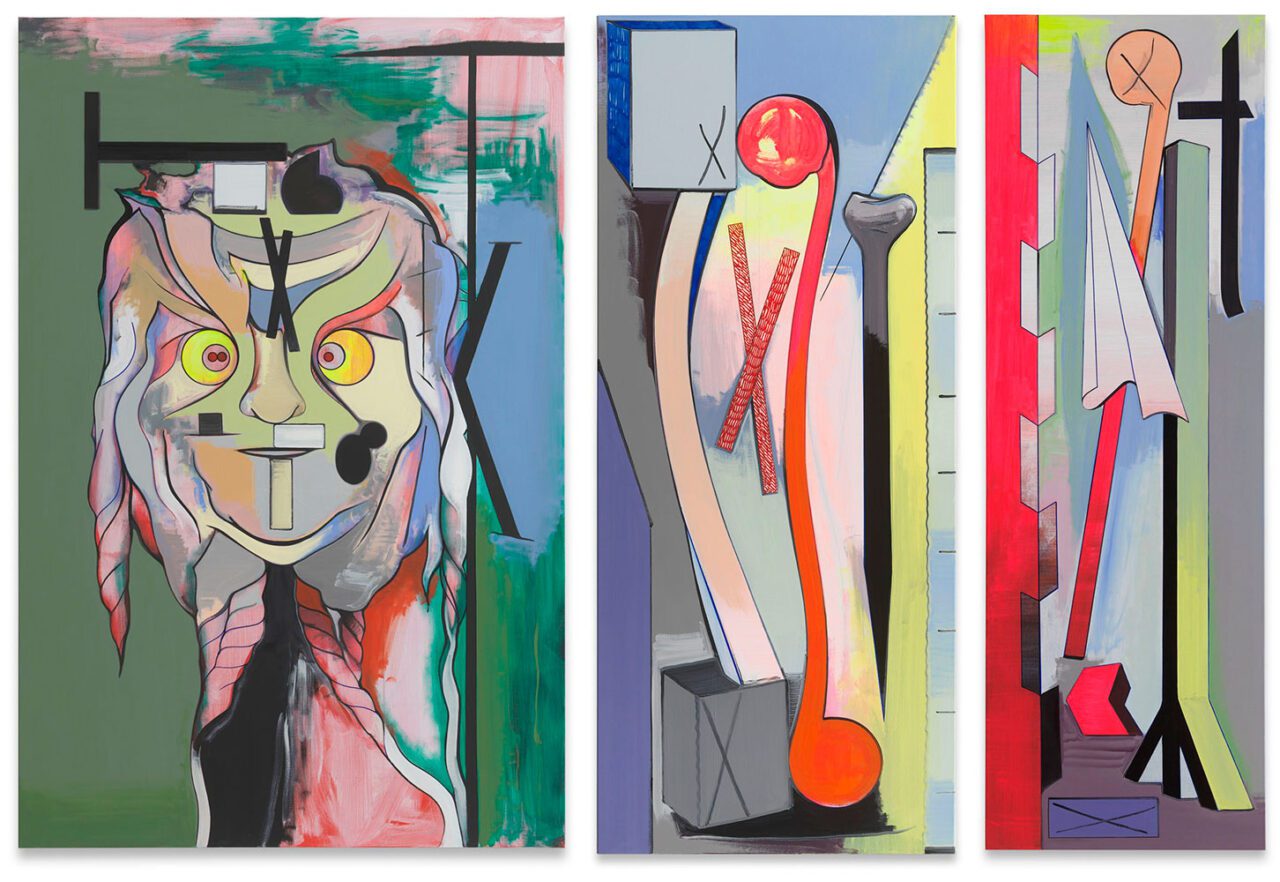
Center: Thomas Scheibitz, Dur, 2024, Oil, vinyl and pigment marker on canvas, 190 × 80 cm | 74 7/8 × 31 1/2 inchess, © Thomas Scheibitz, Courtesy the artist and Sprüth Magers Gallery
Right: Thomas Scheibitz, Moll, 2024 , Oil, vinyl and pigment marker on canvas, 240 × 80 cm | 94 1/2 × 31 1/2 inchess, © Thomas Scheibitz, Courtesy the artist and Sprüth Magers Gallery
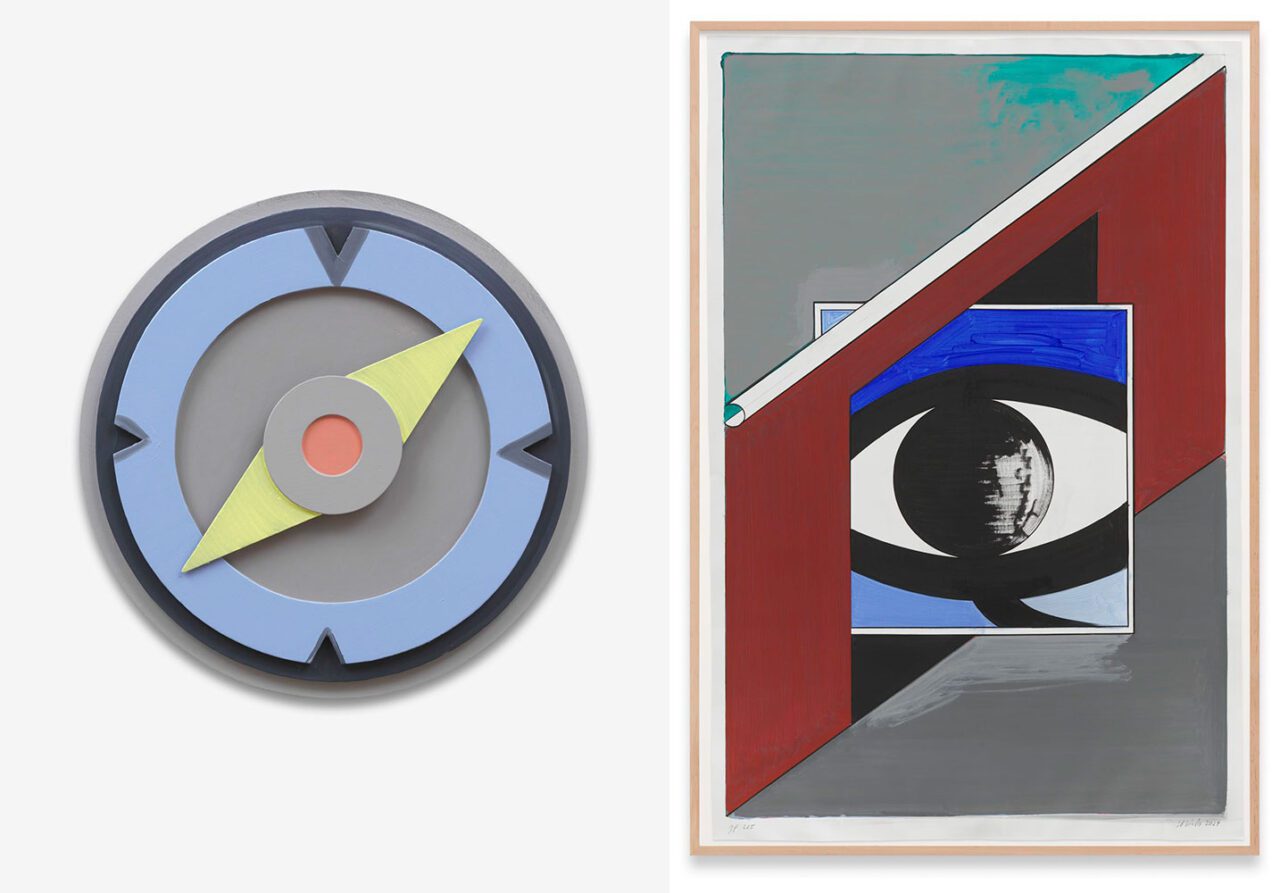
Right: Thomas Scheibitz, gp 325, 2022, Vinyl and pigment markers on textile paper, 145 × 95 cm | 57 × 37 3/8 inchess, © Thomas Scheibitz, Courtesy the artist and Sprüth Magers Gallery


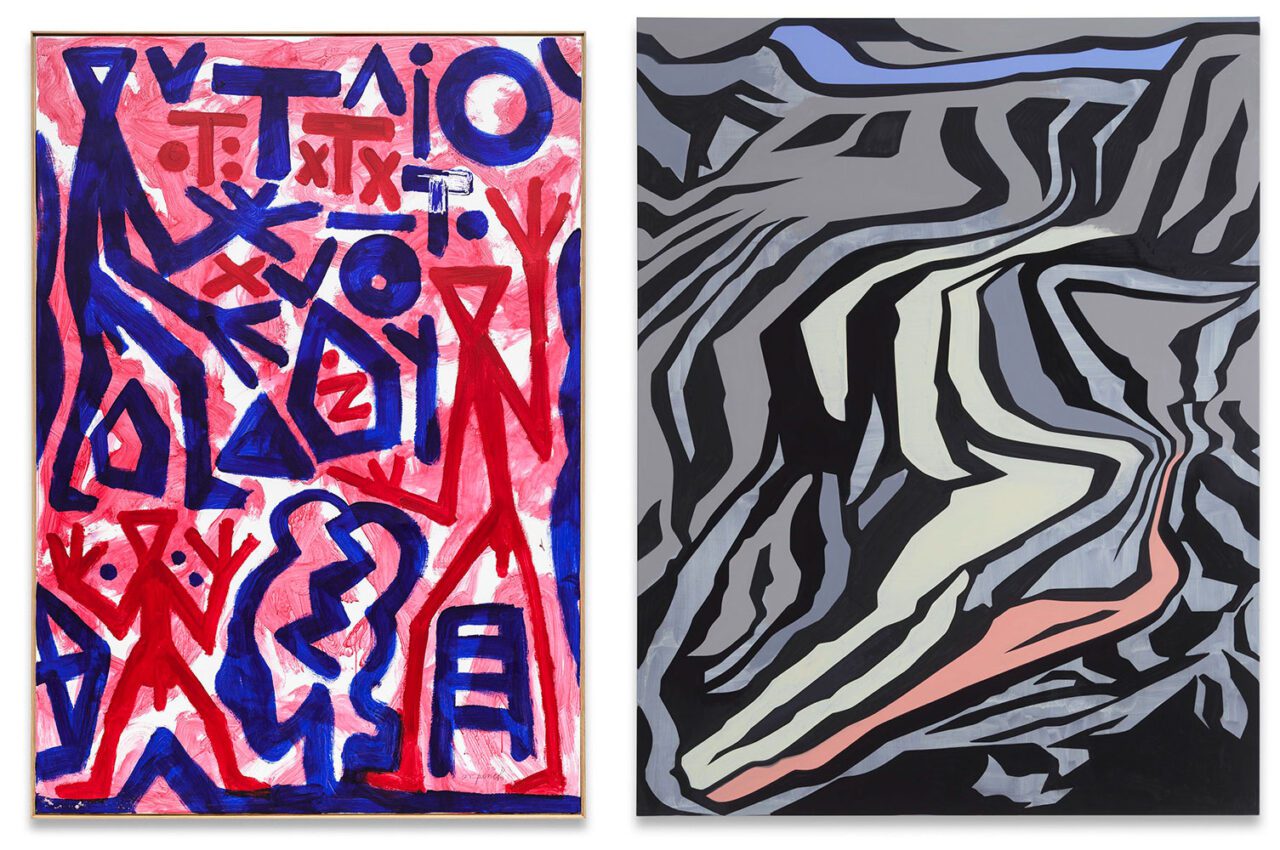
Right: Thomas Scheibitz, Muster, 2024, Oil, vinyl and pigment marker on canvas, 230 × 180 cm | 90 1/2 × 70 7/8 inchess, © Thomas Scheibitz, Courtesy the artist and Sprüth Magers Gallery
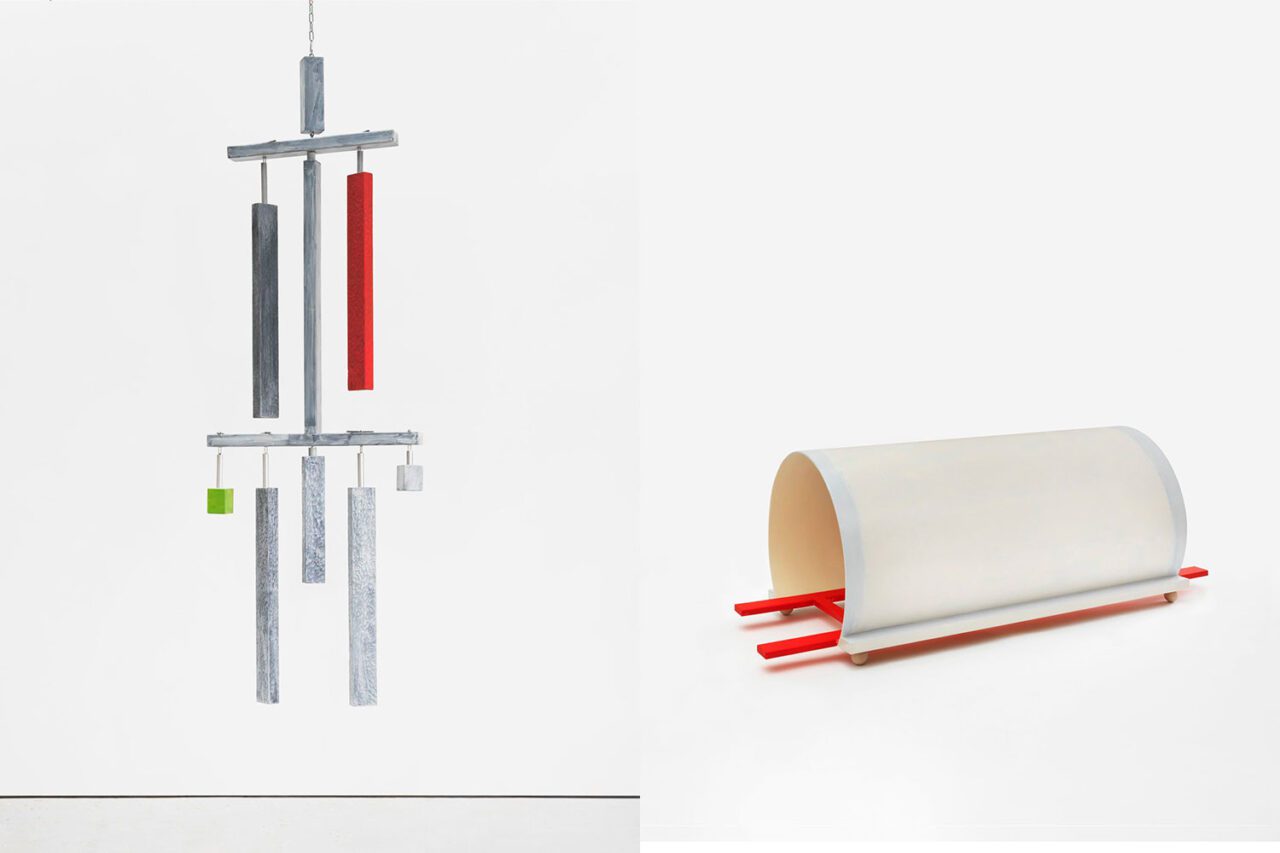
Right: Thomas Scheibitz, Omega – Tunnel, 2024, Wood, MDF, cardboard, 48 × 146 × 54 cm | 19 × 57 1/2 × 21 1/4 inchess, © Thomas Scheibitz, Courtesy the artist and Sprüth Magers Gallery
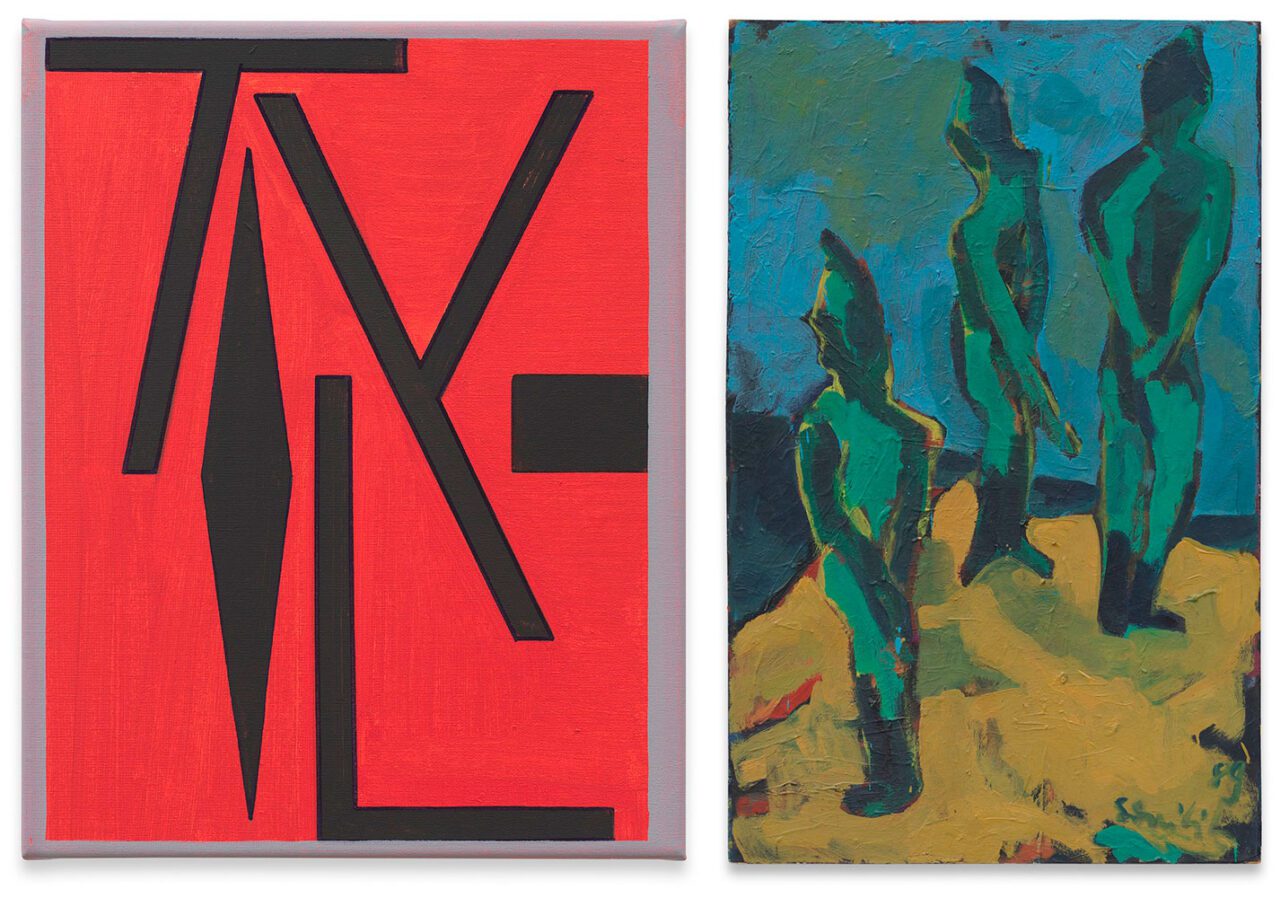
Right: Thomas Scheibitz, Drei Soldaten, 1989, Oil on hardboard, 86 × 54 cm | 33 7/8 × 21 1/4 inchess, © Thomas Scheibitz, Courtesy the artist and Sprüth Magers Gallery
